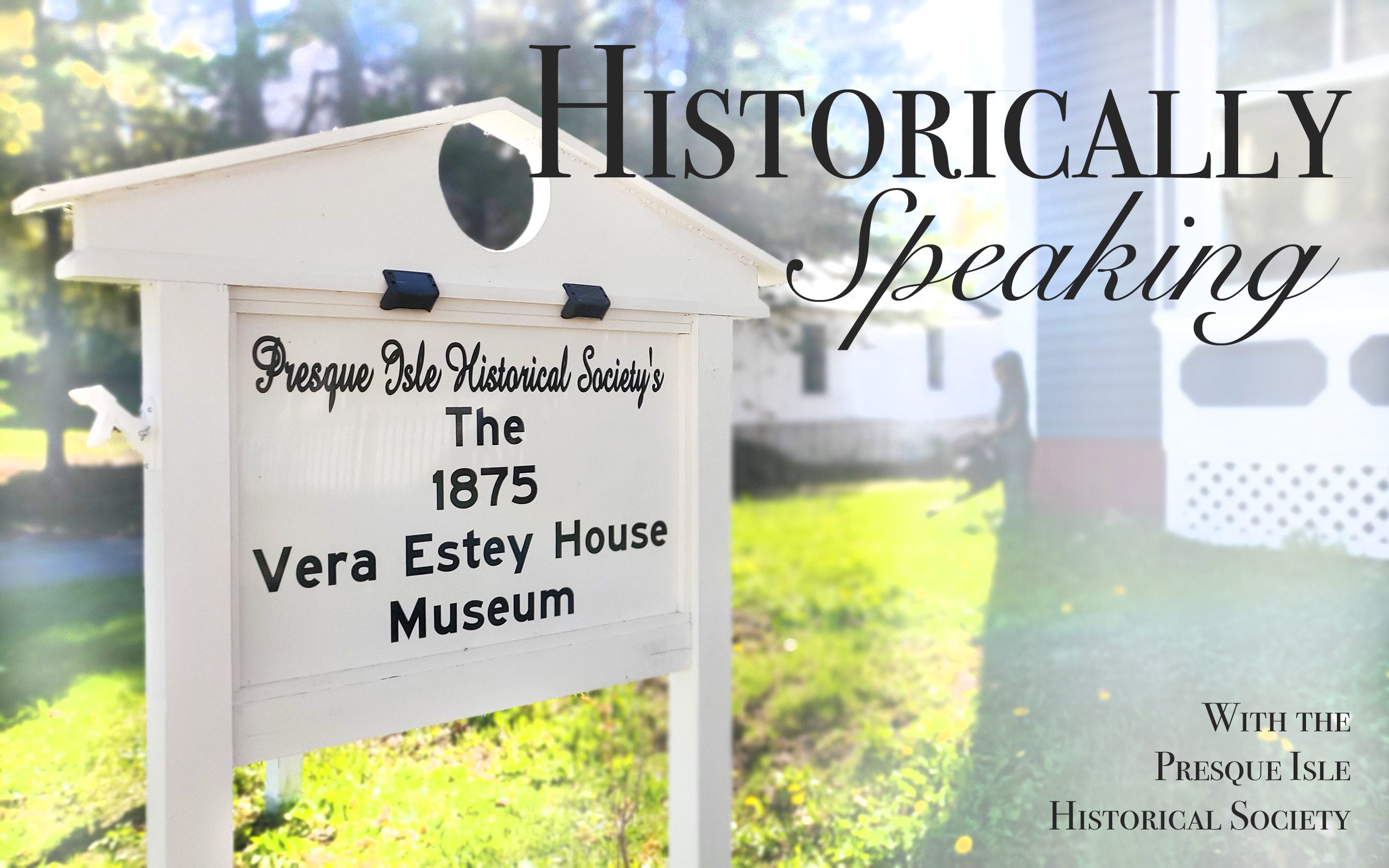Have you ever stopped to wonder where our streets got their names? As is the case often in small communities, the streets are named after early settlers.
At one point in time, Presque Isle had two streets that bore the name of Parkhurst. First was the Parkhurst Road, originally in the town of Maysville (annexed by Presque Isle in 1883). This road is now known as the Brewer Road. Additionally, we have Parkhurst Siding Road. Both were named after Elisha Parkhurst.
Elisha Emery Parkhurst was born on Jan. 26, 1834, in Dresden, Maine. He completed his education in Unity schools. From 1850 to 1854, Parkhurst assisted his father on the farm. He then became an itinerant merchant, traveling through Penobscot and Aroostook counties.
In 1858, he bought a 320-acre farm in Maysville. Elisha Parkhurst’s farm, which still stands today, was located on the northeast end of what is now the Brewer Road. He cleared 200 of the 320 acres for farming. From 1868 to 1912, he also sold farm machinery in Maysville.
In 1883, Parkhurst built a starch factory along the Canadian Pacific Railroad line in what is now referred to as Parkhurst Siding. Parkhurst ran this enterprise for 10 years.
Roads or neighborhoods bearing the word “siding” referred to those being alongside the railroad line, and most commonly where there was a stop to load and/or unload cargo of some kind.
Parkhurst and his wife, Sarah, had two children, both of whom attended high school in Presque Isle.
For 25 years, Elisha Parkhurst was one of the largest shippers of potatoes in the country. In fact, it was from one of his ideas that the spraying machine for potatoes was invented. Parkhurst actually received a letter from the US Department of Agriculture acknowledging this contribution.
As is true of many of our early settlers, Elisha was quite active in his community and politics. He served on the Board of Agriculture for three years, as chaplain of the Maine State Grange for four years and an officer from 1878 to 1881, as a State Representative in 1877 and 1878, as a Maine state senator in 1880 and 1882, as a deacon of the Congregational Church and was one of the five original organizers of the church, as a member of the Trinity Lodge of Free Masons no. 130, as a major supporter to build a new fire house in 1912 on the corner of Second and Church streets, and as a member of the Maysville Grange. In fact, he was one of the three original members of the Maysville Grange along with John Allen and Columbus Hayford.
In 1865, just a few short months after the end of the Civil War, the Town of Maysville, led by Elisha Parkhurst, Donald Dodge and Henry Rolfe, appropriated $250, which was then matched by the school system, to build a new schoolhouse. The site is now that of Presque Isle Historical Society’s Maysville Museum.
Elisha Parkhurst retired from his farm and built a grand home in Presque Isle on the corner of Church and Third streets. He died in this home in February 1930 at the ripe old age of 97.
Kimberly R. Smith is the secretary/treasurer of the Presque Isle Historical Society.





